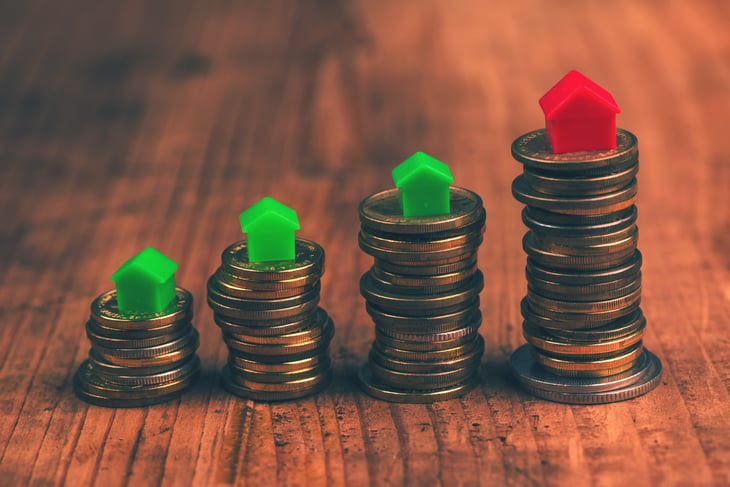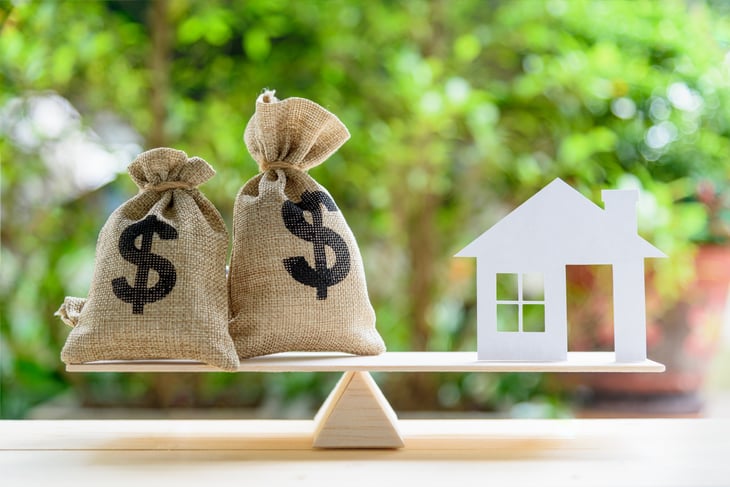
Editor's Note: This story originally appeared on SmartAsset.com.
Whether you experience a sudden financial windfall or just find yourself with leftover cash in your budget each month, you might be wondering what to do with those extra funds.
One option is to contribute more money toward the loan on your home. But should you pay off a mortgage early, or are there better places to focus your efforts? Here are some key factors to keep in mind. Consider working with a financial adviser as you weigh your options.
There are some very good reasons to consider paying off a mortgage early, whether that means adding a little extra onto the monthly payment or contributing a lump sum to the balance owed.
Here are some benefits to closing out your mortgage loan ahead of schedule — then some reasons not to, and advice on making a decision.
You’ll Save on Interest

By paying off your home loan early, you will save yourself more in interest charges than if you paid off the loan according to schedule.
How much you’ll save depends on the total of the principal-only payments you make, as well as where in the amortization schedule you make those payments (how early into the loan they are applied).
You’ll Reduce Your Living Expenses

Without a monthly mortgage payment, your monthly living expenses will be drastically decreased. The lower your living expenses, the less emergency savings you and your family need in order to feel financially secure.
You’re also able to retire sooner or with less in savings if you don’t need to spend as much each month.
You’ll Free Up Cash for Other Purposes

Once your home mortgage is paid off, you can put the money that would have been earmarked for a monthly payment toward any number of other goals. You could:
- Pay off other debt, such as credit card balances or student loans.
- Boost your retirement contributions.
- Put more money toward investments.
- Pay for big life expenses, such as your kids’ college tuition.
- Purchase a second home or rental property.
The opportunities are endless and depend only on your goals and existing financial situation.
Downsides to Paying Off a Mortgage Early

Of course, there are a few times when paying off a mortgage early may not be the wisest idea. Here are two things to consider first.
You may earn more elsewhere
One of the biggest reasons to hold off on paying down your mortgage loan early is if you can actually earn more money on that cash elsewhere.
Say you come into a $50,000 windfall, and aren’t sure what to do with the money. You have a conventional home loan with a 2.25% interest rate, but your bank is offering you a certificate of deposit (CD) with a 3.5% APY. In this case, putting that money in a CD rather than paying off your mortgage early would be the most lucrative option.
You’ll lose your mortgage interest tax deduction
When it comes to taxes, the mortgage interest deduction can save taxpayers hundreds — or even thousands — of dollars per year. If you pay off your home mortgage loan early, you will no longer be able to deduct that expense from your taxes and may unexpectedly increase your tax bill in the process.
It’s important to consider how much you save annually, depending on your home mortgage loan and your tax bracket. To see how much your taxes may increase from one year to the next (if you lose this deduction), consult a tax professional.
Questions to Ask Yourself First

Before you make the decision to pay off your mortgage early, here are a few questions you may want to ask yourself.
Do I Have Enough Liquid Funds?
Liquidity is an important part of maintaining financial security. Keeping a portion of your assets in cash — which can be quickly and easily accessed — can not only protect you in an emergency situation but also ensure that you’re always able to take advantage of financial opportunities. Before you put extra cash into your home mortgage, ensure that you have a sufficient emergency fund saved up. Also consider setting aside three to six months’ worth of expenses, which could tide you over whether you are in-between jobs or your company shuts down for a pandemic.
Am I Saving Enough for Retirement?
If you’re not already maxing out your retirement contributions, this might be a worthwhile alternative to paying off your mortgage early. The more you invest (and the earlier you do it) the better the chance you have of successfully funding your retirement years.
You should ideally be contributing enough to take full advantage of any employer match you’re offered. You should also consider putting enough in any tax-advantaged accounts you have , like a 401(k) or IRA, to reach your maximum annual contribution threshold.
Could I Earn More in Interest Elsewhere?
As mentioned above, you should consider putting your extra money somewhere other than your mortgage loan if you’re able to earn more in interest.
In some cases, you may be able to get more from a high-yield savings account or CD than you’re paying in interest on your home loan. Or, you may decide that another short-term investment opportunity — such as a peer-to-peer lending platform — could net you more money in the long run.
An Alternative to Paying Off a Mortgage Early

If you want to save money on your home mortgage loan or get out of debt sooner, paying off the loan ahead of schedule is an option. But so is refinancing.
Refinancing your home mortgage can be a great alternative to paying off your loan early. With the right refi loan, you could reduce your interest rate, shorten your loan term and even lower your monthly payments all at once. And you can still put your extra cash to work elsewhere!
Bottom Line

A mortgage is a significant monthly expense for many households, and paying off that loan early can help reduce interest paid as well as eliminate the debt early.
Whether you find extra wiggle room in your budget or experience a financial windfall, though, there are some important things to consider before you go paying off your mortgage early. For some homeowners, it may actually make more sense to put that money to work elsewhere first.





Add a Comment
Our Policy: We welcome relevant and respectful comments in order to foster healthy and informative discussions. All other comments may be removed. Comments with links are automatically held for moderation.